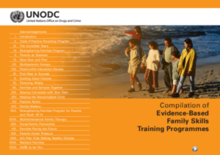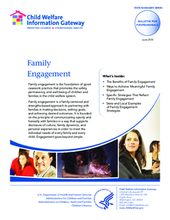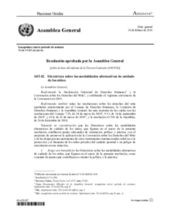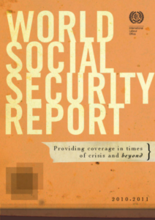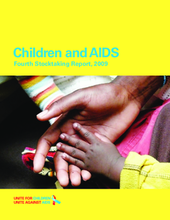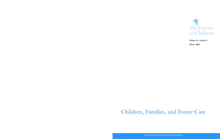Displaying 791 - 800 of 911
This compilation provides policymakers, programme managers, non-governmental organizations and others interested in implementing family skills training programmes with a review of existing evidence-based family skills training programmes. Its purpose is to provide details of the content of such programmes, the groups targeted, the materials used and the training implemented, in order to assist users in selecting the programme best suited to their needs and to offer guidance as to the kind of programmes available.
In June 2010, the Committee on the Rights of the Child issued its Concluding Observations to countries reviewed during the Committee's 54th session. This brief summarizes the UNCRC observations regarding alternative care.
The special issue brings together the rationale for family-centred services for children affected by HIV and AIDS and some of the available evidence for the effectiveness of integrating treatment and care into the broader context of family-support schemes
Family engagement is the foundation of good casework practice that promotes the safety, permanency, and well-being of children and families in the US child welfare system. This brief offers information to help State child welfare managers improve family engagement across program areas.
This article explores how established faith-based organizations that work with children affected by HIV/AIDS address the Convention on the Rights of the Child and the Millennium Development Goals in their service practices and what challenges they face.
Las directrices sobre las modalidades alternativas de cuidado de los niños fueron endosados por la Asamblea General de las Naciones Unidas el 20 de noviembre de 2009, en conexión con el 20a aniversario de la Convención de los Derechos del Niño de la ONU.
This report from the International Labor Organization is the first in a series of the World Social Security Reports whose chief aim is to present the results of regular statistical monitoring of the state and developments of social security in the world. It presents the knowledge available on coverage by social security in different parts of the world and identifies existing coverage gaps. It also examines the scale of countries’ investments in social security, measured by the size and structure of social security expenditure and the sources of its financing.
Offers updates, authoritative data, evidence and recommendations on key areas including prevention of mother-to-child transmission, paediatric care and treatment, preventing infection among adolescents and young people, protection, care and support for children affected by HIV and AIDS, programme monitoring and evaluation.
Provides global estimates of the number of highly vulnerable children; a summary of United States Government (USG) assistance programs for highly vulnerable children; a summary of progress coordinating the response among USG agencies; key strategic issues and opportunities; priorities for 2009–2010 and beyond; and a summary of the results and achievements of USG assistance
This report from Save the Children outlines recommendations to governments and donors in order to ensure that positive childcare and protection practices are pursued at every level.

